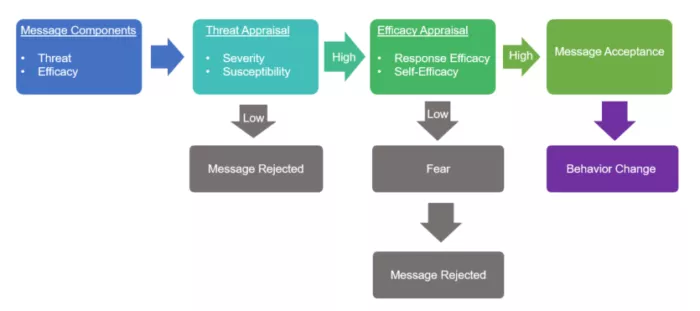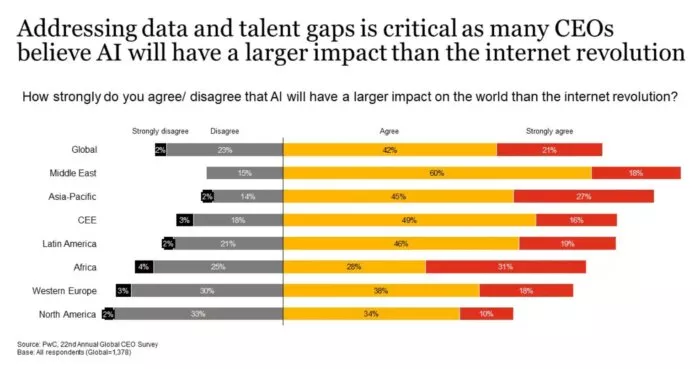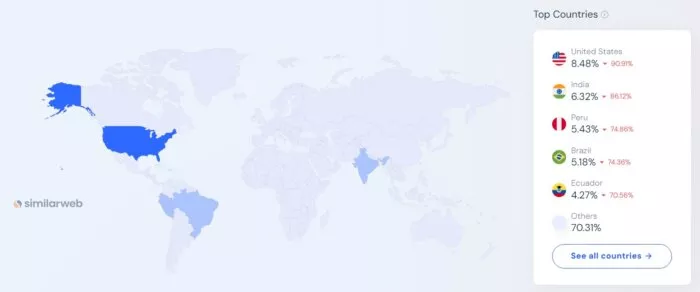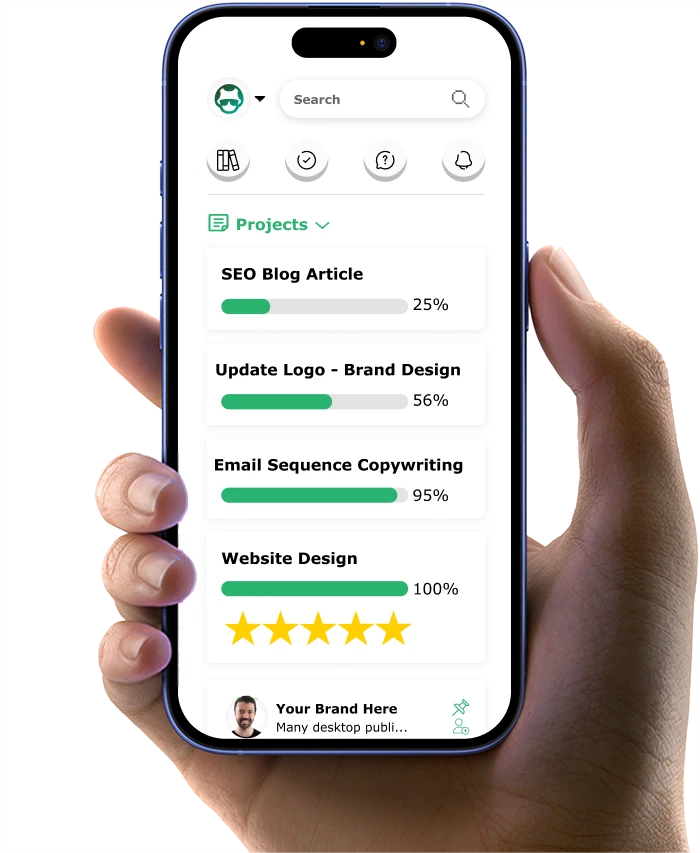This is OpenAI's 'Magician Backflip' Mass Persuasion Trick

In late 2022, OpenAI unleashed ChatGPT upon the world. Within two months, 100 million people had signed up to try out this conversational AI marvel.
But amidst the hype and fear-mongering, did you catch the magician's backflip on the surfboard?
We'll look into OpenAI's master stroke of persuasion. This allowed them to control the ChatGPT narrative and may shape the future of AI regulation.
Here's what you'll learn:
- How OpenAI pulled off the ultimate misdirection with ChatGPT's launch
- The power of fear tactics in persuasion and the regulatory capture debate
- The future of AI and how to harness it for growth
- ChatGPT's influence on public perception and AI regulation
- Lessons from OpenAI's ChatGPT launch and a call to action
Buckle up, because we're about to lean into the Terminator timeline!
We have three available spots for our done-for-you service. Additionally, our current service will soon be integrated with our AI platform, Growbo. Sign up for the Run package or above within the next two weeks and receive FREE access to Growbo.
The ChatGPT Revolution and OpenAI's Magician's Backflip
Hey there, fellow humans! It's your friendly neighborhood AI enthusiast here, ready to chat about the wild ride that is the ChatGPT revolution.
In case you've been living under a rock (or just taking a much-needed digital detox), OpenAI's ChatGPT burst onto the scene in late 2022 and quickly amassed 100 million users within just two months.
That's faster than any other platform in history, surpassing the adoption rates of TikTok and Instagram (Statista, 2023).
But here's the thing: while everyone was busy marveling at ChatGPT's ability to write essays, answer questions, and even code (RIP homework), OpenAI was pulling off a persuasion trick that would make David Copperfield proud.
I like to call it the "magician's backflip on a surfboard," because it was that impressive and went largely unnoticed by the general public.
The Fear Factor: Leaning into the AI Apocalypse Narrative
So, what exactly did OpenAI do? They leaned into the fear. Hard.
Instead of just focusing on the potential benefits of ChatGPT and other AI technologies, OpenAI CEO Sam Altman took to the halls of Congress, warning of an impending AI apocalypse that could threaten the very existence of humanity.
Forget job displacement and economic disruption; we're talking full-on Terminator vibes here.
It's a strategy that plays on our deepest fears, tapping into the existential dread that has long been associated with the rise of artificial intelligence.
By painting a picture of a future where AI runs amok, OpenAI effectively shifted the conversation away from the more mundane concerns surrounding the technology, such as its impact on homework and jobs.
The Overton Window: Reframing the AI Debate
This move was a master stroke in terms of controlling the narrative.
By going straight for the jugular and invoking the specter of a Terminator-like future, OpenAI was able to reframe the entire debate around AI.
Suddenly, the conversation was no longer about the near-term implications of the technology, but rather about the need to regulate and control it before it's too late.
In essence, OpenAI moved the Overton window – the range of ideas that are considered acceptable in public discourse – by leapfrogging over the more immediate concerns and going straight for the doomsday scenario.
This allowed them to control the conversation and potentially shape the future of AI regulation in their favor.
The Power of Fear in Persuasion and the Regulatory Capture Debate
By shifting the conversation to the existential threat of AI, OpenAI masterfully redirected attention away from the more immediate concerns surrounding the technology.
It was a genius move because, as we all know, fear tactics are the ultimate persuasion tool. When we're scared, our reptilian brains take over, and rational thinking takes a backseat.
A study by Dolores Albarracin, PhD, professor of psychology at the University of Illinois at Urbana-Champaign found that fear-based messaging can be more effective in persuading people than rational arguments.

Now, I'm not saying that OpenAI's concerns are entirely unfounded. As someone who's been fascinated by AI for years and has even built neural networks from scratch (weird flex, I know), I understand the potential risks associated with this technology.
However, by emphasizing the "Terminator timeline" and the need for regulation, OpenAI may be positioning itself to shape the future of AI development in its favor.
Some have even accused OpenAI and other tech giants of attempting "regulatory capture," where they use government intervention to gain an advantage over the emerging AI industry.
ChatGPT's Influence on Public Perception and AI Regulation
It's hard to overstate the impact that ChatGPT has had on the public's perception of AI.
By demonstrating the technology's incredible potential in such a user-friendly and accessible way, OpenAI has brought AI into the mainstream consciousness like never before.
However, this increased awareness has also fueled fears about the technology's potential downsides, such as job displacement and the possibility of AI systems becoming too powerful to control.
OpenAI's decision to lean into these fears and call for regulation has undoubtedly shaped the conversation around AI regulation, and it remains to be seen how this will play out in the long run.
Will OpenAI's strategy lead to sensible regulations that ensure the responsible development of AI, or will it result in a regulatory environment that stifles innovation and gives an unfair advantage to established players like OpenAI?
Only time will tell, but one thing is clear: ChatGPT's influence on public perception and AI regulation is already being felt, and it's likely to continue shaping the debate for years to come.
The Future with AI and Harnessing AI for Growth
Of course, it's essential to have honest conversations about the pros and cons of AI and to implement sensible regulations to ensure its responsible development.
But let's not get carried away with the doomsday scenarios just yet. I believe that the future with AI can be bright and positive, as long as we approach it with a healthy mix of caution and optimism.
In fact, recent surveys found that:
- 85% of CEOs believe AI will significantly change the way they do business in the next five years

- 51% of CEOs are now recruiting for generative AI roles that didn't exist a year ago
That's where companies like Growbo come in. We're working hard to help businesses integrate AI in a way that enhances their operations, boosts efficiency, and promotes growth, all while maintaining a human touch.
Because let's face it, as much as I love my robot brethren, there's no replacing the warmth and creativity of the human spirit.
AI and the Future of Work: Disruption or Collaboration?
One of the biggest concerns surrounding AI is its potential impact on jobs.
With ChatGPT and other AI models becoming increasingly sophisticated, there's a fear that they could automate away many jobs, leading to widespread unemployment and economic disruption.
However, it's important to remember that technology has always been a disruptive force in the job market.
From the industrial revolution to the rise of computers and the internet, new technologies have consistently reshaped the way we work, creating new opportunities even as they render certain jobs obsolete.

Rather than viewing AI as a threat to jobs, we should see it as an opportunity to rethink the way we work and to create new roles that leverage the strengths of both humans and machines.
By collaborating with AI rather than competing against it, we can unlock new levels of productivity and innovation, while also freeing up humans to focus on higher-level tasks that require creativity, empathy, and strategic thinking.
Lessons from OpenAI's ChatGPT Launch and Call to Action
So, what can we learn from OpenAI's ChatGPT launch?
For one, the power of persuasion and the importance of controlling the narrative.
But more importantly, it's a reminder to think critically about the information we consume and to approach AI with both excitement and discernment.
As we navigate this new AI-driven world, I encourage you to:
- Stay informed
- Engage in meaningful discussions
- Keep an open mind
And if you're looking to harness the power of AI for your business, check out Growbo.com — we're here to help you automate your growth and stay ahead of the curve, all for just $1.
Now, if you'll excuse me, I have a demo to run and a world to save from the robot apocalypse. Just kidding! Or am I?
Don't forget to leave a comment below with your thoughts on OpenAI's ChatGPT strategy and how you plan to incorporate AI into your business!
Keep Growin, stay focused,

Image Credits:
1. https://ua.pressbooks.pub/persuasiontheoryinaction/chapter/fear-appeals-the-extended-parallel-process-model/
2. https://www.pwc.com.au/digitalpulse/report-pwc-global-ceo-survey-ai-skills.html
3. https://www.similarweb.com/website/chat.openai.com/#geography













